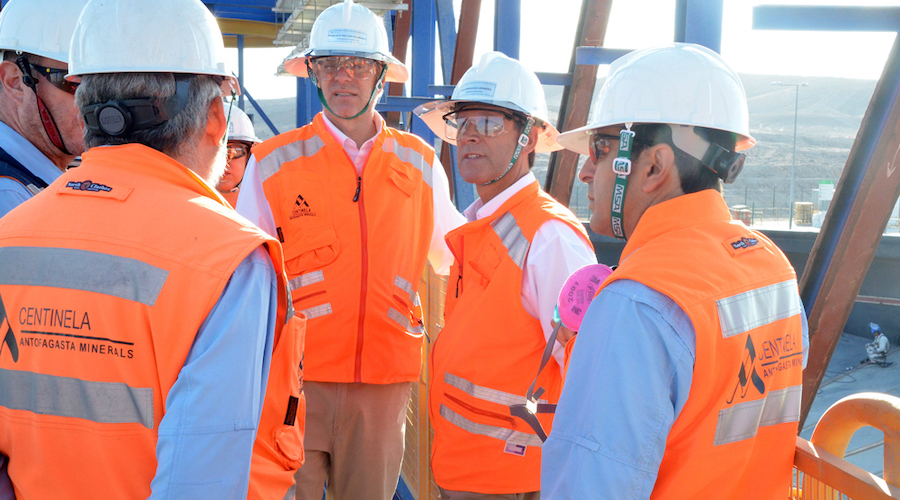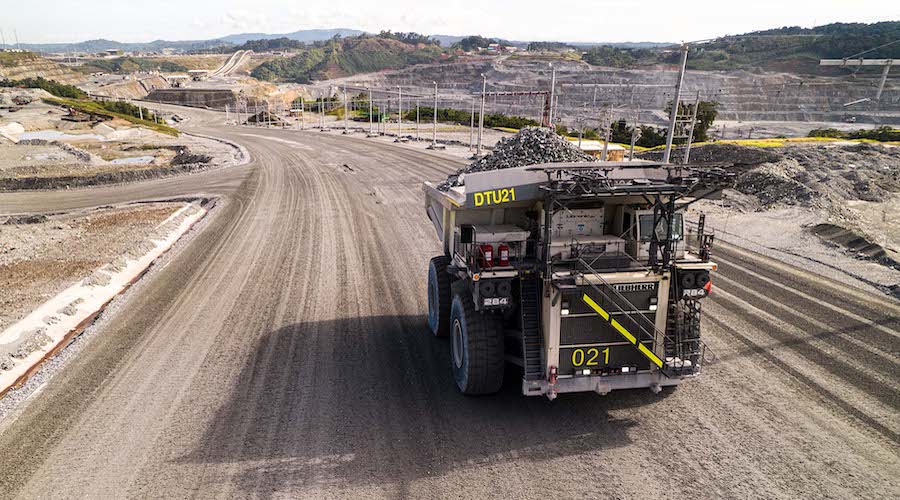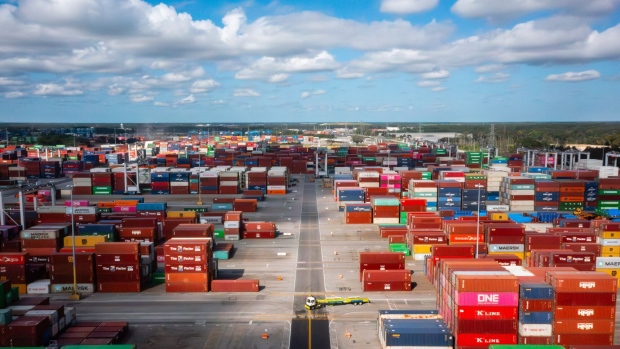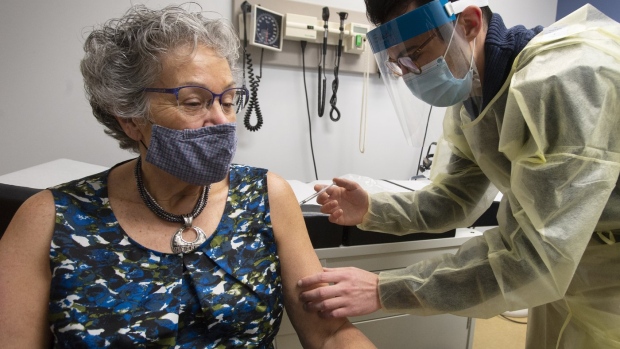Bloomberg News | December 8, 2023 |
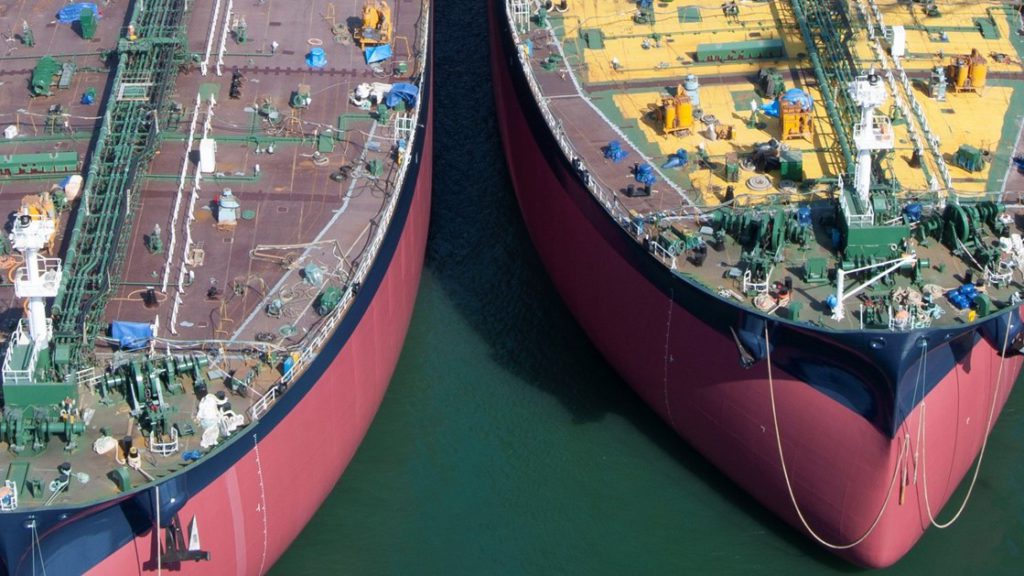
Image: Trafigura
For years, one of the most powerful people in commodity trading has been a quietly spoken English accountant who is barely known outside his own company. But this week, Trafigura Group’s Mike Wainwright was thrust into the spotlight after being charged by Switzerland’s top prosecutor for allegedly bribing an Angolan government official.

Wainwright, who has spent his whole career at Trafigura and was a protégé of charismatic founder Claude Dauphin, might be the most senior commodity trader ever to be charged with corruption. Despite the industry’s reputation for brown envelopes and backhanders that goes back to the days of Marc Rich, very few of the most senior figures have ever faced prosecution.

If found guilty he’ll face up to five years in prison. He denies the charges.
An avid motor racer, Wainwright, 50, has avoided the public profile of some of the company’s top traders. But people who have worked with him at Trafigura say he has for decades been a hugely powerful figure — and one of the largest shareholders — at the company that ranks as one of the world’s biggest commodity traders.
The Swiss case against Wainwright and Trafigura highlights the growing desire of prosecutors to hold the industry’s top figures accountable for alleged corruption in a sprawling set of cases that have entwined most of the biggest traders. In the UK, prosecutors say they are weighing charges against up to eleven former Glencore Plc traders and executives after the company admitted to charges of paying numerous bribes over a period of years in multiple countries.
For Trafigura, the case coincides with the start of a generational shift in leadership. Wainwright, who held the title chief operating officer from 2008 until earlier this year, had already announced plans to retire next year. He is now on a leave of absence, although he remains an employee.
Both Trafigura and Wainwright intend to defend themselves against the Swiss allegations in court, the company said on Wednesday. A lawyer for Wainwright said he denied having “made, instructed or authorized payments with a corrupt intent.”
In recent years, while prosecutors in the US, UK, Switzerland and Brazil have brought a wave of corruption cases against large commodity trading houses, only a few mid-level traders have been charged with wrongdoing as individuals. Marc Rich freely admitted to having paid bribes in his heyday, but that was in an era of laxer laws on bribery — especially in Switzerland where many traders are based. The oil-for-food scandal involving kickbacks paid to Saddam Hussein’s Iraq in the early 2000s led to several prosecutions of individual traders, largely in the US, but not of the leaders of the world’s largest trading houses.
“We are revisiting the past with today’s eyes,” said Jean-Francois Lambert, a consultant and former banker to the commodity trading industry. “The outcome will be painful for trading houses.”
Employee 41
At Trafigura, Wainwright was formally responsible for the unglamorous side of commodity trading: the teams of logistics specialists and bookkeepers who work in the background to keep track of a company’s trades.
But his role was much more than that. He joined the company in February 1996, just a few years after it was founded by a group of disaffected former Marc Rich + Co. employees. Wainwright was employee number 41, and started as an accountant.
Over time, he became a favorite of founder Dauphin, who valued him for his loyalty and trusted him without question, say several people who worked with both men.
Wainwright was one of the only people inside Trafigura other than Dauphin who knew the ownership stake of each employee in the company, a privately-held partnership where each year employee-shareholders wait with baited breath to discover how many shares they have been allotted.
One former board member recalls how Dauphin and Wainwright would discuss the shareholding breakdown between themselves before presenting it to the rest of the management board as a fait accompli.
In a sign of his significance, it was Wainwright, along with chief executive Jeremy Weir and longtime head of oil trading Jose Larocca, who Dauphin chose to shepherd the company after his death in 2015. For years, Trafigura’s chief financial officer did not have a seat on the company’s board; but Wainwright, its chief operating officer, did.
The individual shareholdings of Trafigura executives are a closely guarded secret, but numerous current and former employees say that Wainwright is one of the company’s largest shareholders.
On Friday, the massive wealth generated by Trafigura for its top executives was underscored when the company said it paid $5.9 billion of dividends to its roughly 1,200 employee shareholders, after notching up another record annual profit.
While Wainwright has maintained a far lower profile outside of the company than Weir or Larocca, he received a rare moment of publicity when he bought a villa on Lake Geneva for just shy of 50 million francs ($57 million). And the wealth he has generated over the years at Trafigura has helped fund his passion for motor racing — he owns an endurance driving team and has competed in amateur versions of the famed Le Mans 24-hour race.
Personally approved
Wainwright is known inside Trafigura for his focus on numbers rather than relationships — almost a mirror image of his mentor, Dauphin, who relished striking friendships with business leaders and politicians and pursued new deals with a passion that sometimes obscured their dubious commercial logic.
He personally approved even relatively small expenditures – such as a subscription to an industry newsletter – making him unpopular among some in Trafigura’s ranks who bridled at having their spending pored over.
That oversight has also made him a target for prosecutors pursuing Trafigura’s alleged historical corruption. When Brazilian prosecutors accused Trafigura of corruption as part of the sprawling “Car Wash” probe in a civil case in 2020, Wainwright was named as a defendant. Prosecutors showed emails in which he approved payments – providing five-digit reference numbers for Trafigura’s books – that they say were used to bribe Petrobras officials.
A spokesperson said that Trafigura was not aware of any evidence that Wainwright or anyone in its current management had “authorized or had knowledge of improper payments to employees of Petrobras.”
And in Angola, Swiss prosecutors allege, Wainwright approved bank transfers and cash payments totaling around $5 million to the head of a unit of state oil company Sonangol.
Trafigura said it had been willing to settle the Swiss investigation out of court, but that now it would defend itself in court.
Still, Trafigura in a statement this week acknowledged past wrongdoing.
“We sincerely regret these incidents which breached our code of conduct and are contrary to our values,” CEO Weir said in the statement. “Our compliance policies and procedures have been externally reviewed and found to meet relevant legal requirements and international good practice standards. These historical incidents in no way represent the company we are today.” The company said it was close to a settlement with the US Department of Justice in relation to “improper payments” in Brazil.
In other trading companies, a settlement with US prosecutors has heralded a generational shift in management. For example, almost all of the top tier of Glencore’s management retired in the years leading up to the company’s settlement with the DOJ.
For Trafigura’s leadership, the charges come at a sensitive time, as the company is still dealing with the fallout after falling victim to a massive alleged nickel fraud. It also recently announced a reorganization of its top management, although Weir and Larocca remain its two most senior executives.
Trafigura does not expect any changes in its senior management as part of the settlement process, the company said in a response to questions on Thursday.
(By Jack Farchy and Archie Hunter)
Bloomberg News | December 6, 2023 |

Trafigura office in Geneva, Switzerland. Credit: Trafigura
Trafigura Group and one of its longstanding top executives have been charged over allegations of bribing public officials in Angola, in a major blow to one of the world’s largest commodity traders.

Trafigura acknowledged the Swiss charges in a statement, and also revealed for the first time a US Department of Justice investigation into “improper payments” made in Brazil.
The charges are the latest in a series of actions from global prosecutors targeting corruption in the commodity trading industry, and the most serious so far against Trafigura, a leading oil and metals trader.
The charges against Mike Wainwright, who as Trafigura’s chief operating officer has for a decade formed part of the top trio running the company, make him the one of the most senior commodity traders ever to be charged for corruption.
Trafigura’s top competitors Glencore Plc and Vitol Group have in recent years both agreed to pay fines to settle wide-ranging US investigations into corruption, but until now only a few, largely mid-level individuals have been charged in those cases.
The energy crisis over the past two years has raised the profile of companies like Trafigura, Glencore and Vitol in global capitals, as politicians realize they are reliant on commodity traders to secure supplies of essential resources. But it has also heightened scrutiny of an industry that has since the days of Marc Rich had a reputation for corruption and wrongdoing.
For Trafigura, the charges follow a series of setbacks that have pressured its leadership and fueled tensions among the senior ranks — including having fallen victim to a massive alleged nickel fraud. The group, which is preparing to report results for its latest financial year, recently reorganized its top management and has been wrestling with the future of its metals business. Still, the company continues to reap huge profits from its energy divisions.
Cash payments
In a statement Wednesday, the Swiss federal prosecutor’s office said that Trafigura, through its unit Trafigura Beheer BV, failed to take necessary organizational measures to prevent the payment of bribes in Angola between 2009 and 2011.
The trading house paid €4.3 million euros ($4.6 million) to a bank account in Geneva and made cash payments of $604,000 to an Angolan official between April 2009 and October 2011 in relation to its activities in the country’s petroleum industry, the prosecutor said in the statement. It also paid hotel and meal expenses of 797 Swiss francs ($911) for a stay in Geneva.
In return, the Angolan official, the former chief executive officer of a subsidiary of the state oil company Sonangol, favored Trafigura in shipping contracts, the Swiss prosecutor alleges. Trafigura’s alleged profits from those contracts amount to $143.7 million.
Under Swiss law, Trafigura faces penalties equivalent to the total illicit profit plus a fine of up to 5 million francs — or around $150 million in total. That compares to net profits of $5.5 billion reported by Trafigura in its latest half year accounts.
Trafigura said it expects to resolve the DOJ case “shortly” and has made a $127 million provision in its 2023 financial year accounts.
It said that the investigations related in part to statements made by former Trafigura executive Mariano Ferraz as part of a plea agreement following his conviction in a separate case in Brazil. Ferraz was charged with corruption and money laundering as part of the Petrobras Carwash probe, while Trafigura and several of its senior executives have been accused of corruption by Brazilian prosecutors in a civil lawsuit.
Court defense
Trafigura said it had been willing to settle the Swiss investigation out of court, but that now it would defend itself in court. It said Wainwright rejects the Swiss charges and will be mounting a court defense.
“We sincerely regret these incidents which breached our code of conduct and are contrary to our values,” Trafigura CEO Jeremy Weir said in the statement. “Our compliance policies and procedures have been externally reviewed and found to meet relevant legal requirements and international good practice standards. These historical incidents in no way represent the company we are today.”
If Wainwright is found guilty, he faces a potential fine or a maximum of five years in prison. Trafigura earlier this year announced his planned retirement in March 2024, but he has now handed over his responsibilities and is on a leave of absence to focus on his defense, according to a person familiar with the matter.
The Swiss attorney general’s office stressed in today’s statement that this is the first time that a case against a company for alleged bribery of public officials has ever been sent to the country’s top criminal court.
Swiss indictments of companies are rare and convictions even rarer. The last major Swiss company to be convicted of a crime was Credit Suisse Group AG for failing to prevent money laundering. It was one of a series of scandals that befell the bank, which collapsed, and was bought by UBS Group AG less than a year later.
(By Jack Farchy and Archie Hunter)
